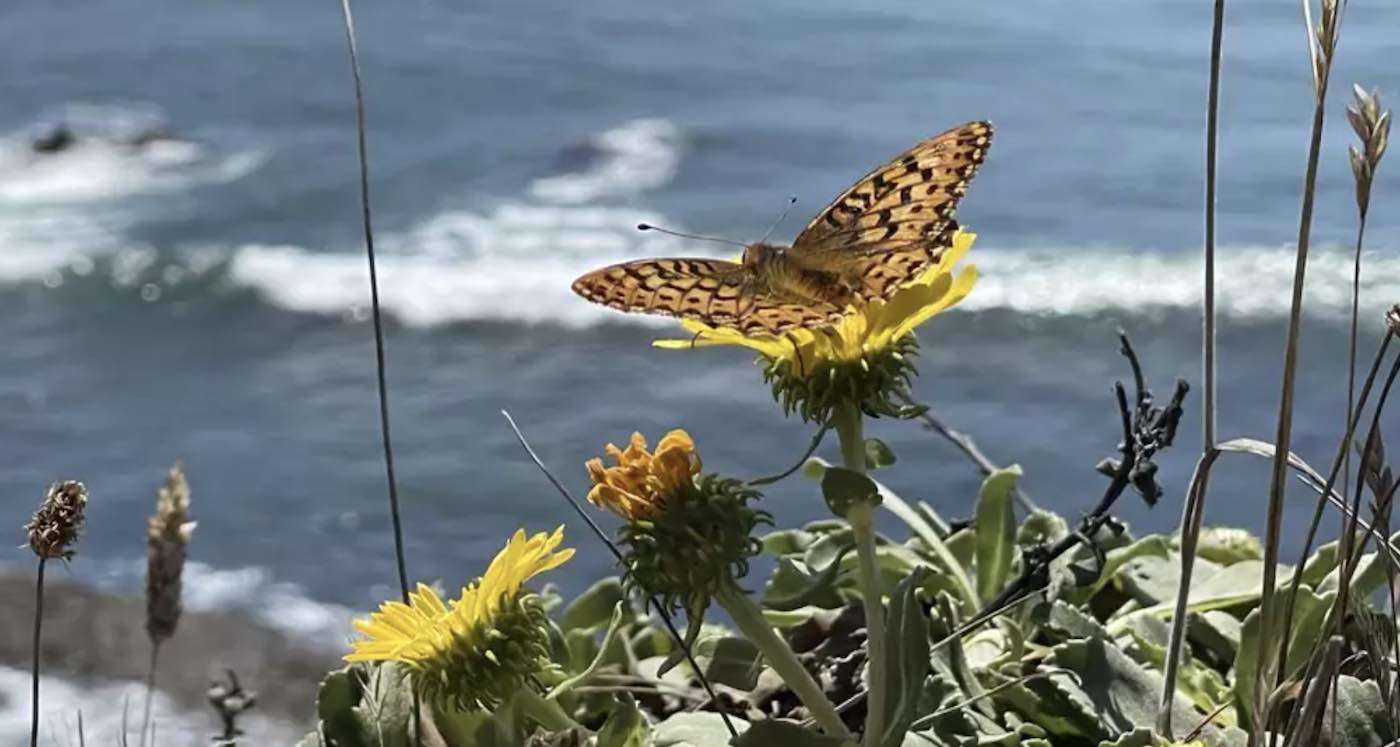Drone Captures Mesmerizing School of Rays that Appear Like Confetti in the Water
Scientists have never seen so many cownose rays traveling together, which is called a 'fever', and say the footage may help science.

In California, a joint effort will oversee a multi-stage, four-year plan to help Behren's silverspot butterfly return in numbers to the coastline of Northern California.
Vitalized by a $1.5 million grant from the State of CA Wildlife Conservation Board, the Mendocino Land Trust (MLT) is planning to plant 35,000 early blue violets, the only plant which the caterpillars of these blazing orange butterflies can eat, along with a mixture of supporting native plants.
Invasive grasses have greatly decreased the footprint of these small purple flowering plants along Northern California's Mendocino coastline—from Salt Point Park in Sonoma County to the Mendocino Headlands, Anna Bride—and the conversion of these plants back to native wildflowers will cover 53 acres.
Furthermore, scores of caterpillars bred in captivity by Speyeria Conservation and Research are set to be released into this new habitat this spring. According to Speyeria, Behren silverspot caterpillars enter a state called ‘diapause' during wintertime, which is a little like hibernation but for insects. They don't grow and don't develop an appetite.
In a Facebook post, the organization said it has 1,412 caterpillars in diapause currently in captivity, meaning it promises to be a busy spring.
The joint effort involves California State Parks, the Bureau of Land Management, the Laguna Foundation, the Sequoia Park Zoo, and Wynn Coastal Planning & Biology, and will last for four years during which time they hope to release 600 of these specimens.
"MLT's winning this grant is a victory for the butterfly and a testimony to the dedication of all of these organizations," MLT wrote in a statement.
The plan comes not a moment too soon, as scientists working on the project told SF Gate that a mere 92 sightings of this butterfly have been documented over the past 15 years.
The Wildlife Conservation Board was established in 1947, and it has evolved today to be an organization that has three primary goals: land acquisition, habitat restoration, and development of wildlife-oriented public access facilities.
On its website, WCB details 17 programs, ranging from butterfly rescue to forest and desert conservation.
SHARE These Dedicated Individuals Working For To Rescue The Butterflies…
Be the first to comment